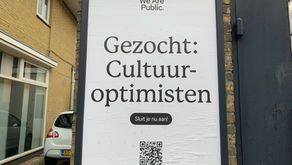New in Knightsbridge
- Judith Weir
- Jan 12, 2016
- 2 min read

Maggie Hamilton, the visionary editor of Choir and Organ Magazine, has been attempting to bring new music and her readership closer together. Her starting point was to organise a number of workshops for student composers. The BBC Singers were involved in these, and a certain amount of (my own) hair was torn while observing the solecisms we often see in new choral scores; text and dynamics in the wrong place, print too small, no piano reductions etc. I occasionally get the impression that writing choral music is considered rather ‘low rent’ by some of our eminent teaching institutions. But after many workshop hours spread over a year or more, a group of very able students was selected to write commissions for a BBC concert and recording at St Paul’s Knightsbridge.
All the new works are refreshing and worth hearing; thanks to the generosity of the two contributing institutions, the BBC and Choir and Organ, they can at present be seen here and there will be a BBC broadcast later. Motets by William Cole and Robert Goulder (setting Lamentations and Wilfred Owen respectively) interestingly combined repetition with rich harmonic complexity. Alexander Proudlock’s setting of a Cumbrian dialect poem brought a welcome, quirky sensibility to the proceedings. Delightful organ works by Edward Nesbit and Ben Comeau both displayed strong musical profiles – which is often not the case on such occasions, when organ interludes are used as generically contrasting material while the choir takes a break.
In the morning I’d joined the BBC Singers and conductor Matthew Hamilton in a session about about Writing Choral Music. Their combined expertise in vocal music is delivered so effortlessly that it can sometimes be underestimated. Feeling occasional personal guilt that I should be pushing the envelope a bit more when writing choral music, I invited BBC tenors Chris Bowen and Stephen Jeffes to talk about the use of extended techniques in the choral context. They soon had the audience in groups delivering advanced vocalisms – I and my neighbours were increasing the frequency vibration of our uvulas and soft palates, producing pig-like snorts. “Did you like doing that?” asked Stephen after a while. “No!” chorused the audience. A general feeling emerged that many extra-singing activities – for instance whispering, voiced and unvoiced - don’t pack much of a dynamic/timbral punch even when projected by a vocal body as mighty as the BBC Singers. Whereas the focus on the timbral/textural elements naturally occurring in sung words can be sonically electric. I’m still thinking about the amazing hard-G sounds emerging from the opening of Per Norgard’s choral masterpiece Wie ein Kind (sung during this session) which begins with Adolf Wolfli’s words “G’ganggali ging g’gang”. When Norgard discovered those strange phrases amongst Wolfli’s ramblings, he struck aural gold.






